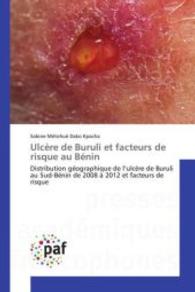Full Description
Women's Human Rights in Nineteenth-Century Literature and Culture sheds light on women's rights advancements in the nineteenth century and early twentieth-century through explorations of literature and culture from this time period. With an international emphasis, contributors illuminate the range and diversity of women's work as novelists, journalists, and short story writers and analyze the New Woman phenomenon, feminist impulse, and the diversity of the women writers. Studying writing by authors such as Alice Meynell, Thomas Hardy, Netta Syrett, Alice Dunbar-Nelson, Mary Seacole, Charlotte Brontë, and Jean Rhys, the contributors analyze women's voices and works on the subject of women's rights and the representation of the New Woman.
Contents
Chapter 1: Alice Meynell's Negative Happiness: The Primacy of Emotion and the Nature of Art
Laura H. Clarke
Chapter 2: Struggles of the New Woman in the New World: The Life of the Nineteenth-Century Emancipated American Woman
Jacquelyn C. Wenneker
Chapter 3: "One of a Sex so Weak": Oppressed Womanhood in Thomas Hardy's The Mayor of Casterbridge
Tatiana Prorokova-Konrad
Chapter 4: "I am, too, an Individual": The Making of the Professional Woman in Netta Syrett's Writing (1890-1899)
Mariam Zarif
Chapter 5: Alice Dunbar-Nelson, the George Sand of New Orleans
Angela R. Hooks
Chapter 6: The Wonderful Adventures of the "Motherly Yellow Woman": Mary Seacole's Emancipated Journeys and Public vs. Private Life
Camille S. Alexander
Chapter 7: Women within Precincts: Colonialism and Racialization in The Madwoman in the Attic, Wide Sargasso Sea, and Jane Eyre
Shilpa Daithota Bhat





